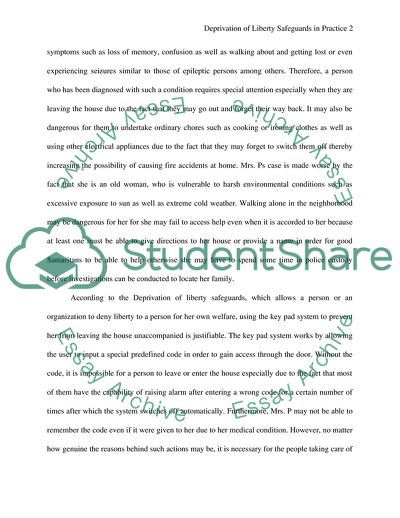Cite this document
(Deprivation of Liberty Safeguards in Practice Coursework, n.d.)
Deprivation of Liberty Safeguards in Practice Coursework. Retrieved from https://studentshare.org/social-science/1735135-deprivation-of-liberty-safeguards-in-practice
Deprivation of Liberty Safeguards in Practice Coursework. Retrieved from https://studentshare.org/social-science/1735135-deprivation-of-liberty-safeguards-in-practice
(Deprivation of Liberty Safeguards in Practice Coursework)
Deprivation of Liberty Safeguards in Practice Coursework. https://studentshare.org/social-science/1735135-deprivation-of-liberty-safeguards-in-practice.
Deprivation of Liberty Safeguards in Practice Coursework. https://studentshare.org/social-science/1735135-deprivation-of-liberty-safeguards-in-practice.
“Deprivation of Liberty Safeguards in Practice Coursework”. https://studentshare.org/social-science/1735135-deprivation-of-liberty-safeguards-in-practice.


